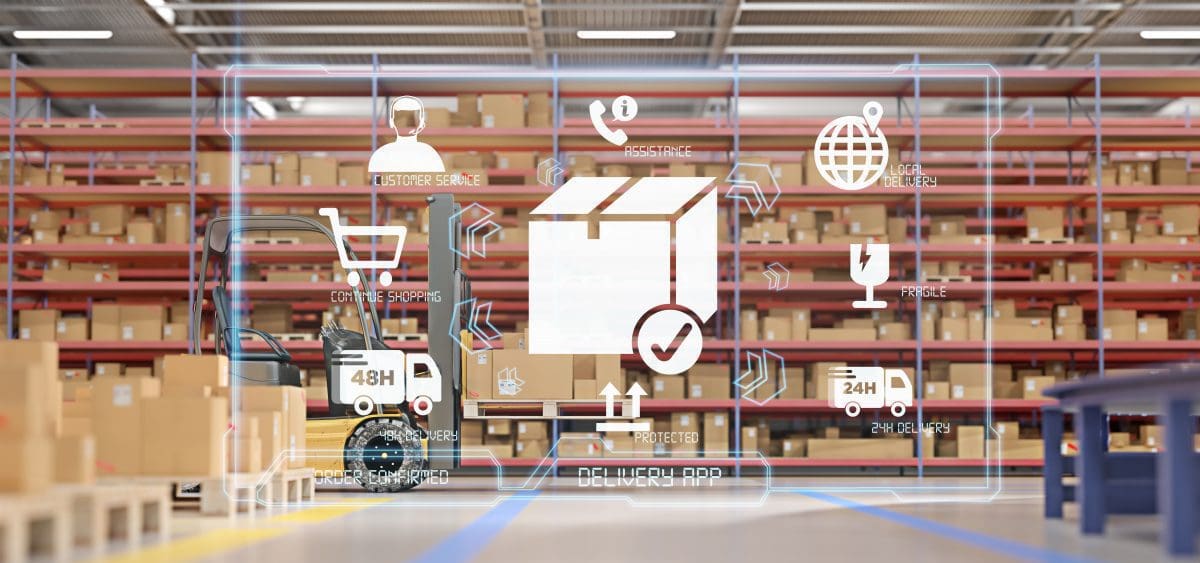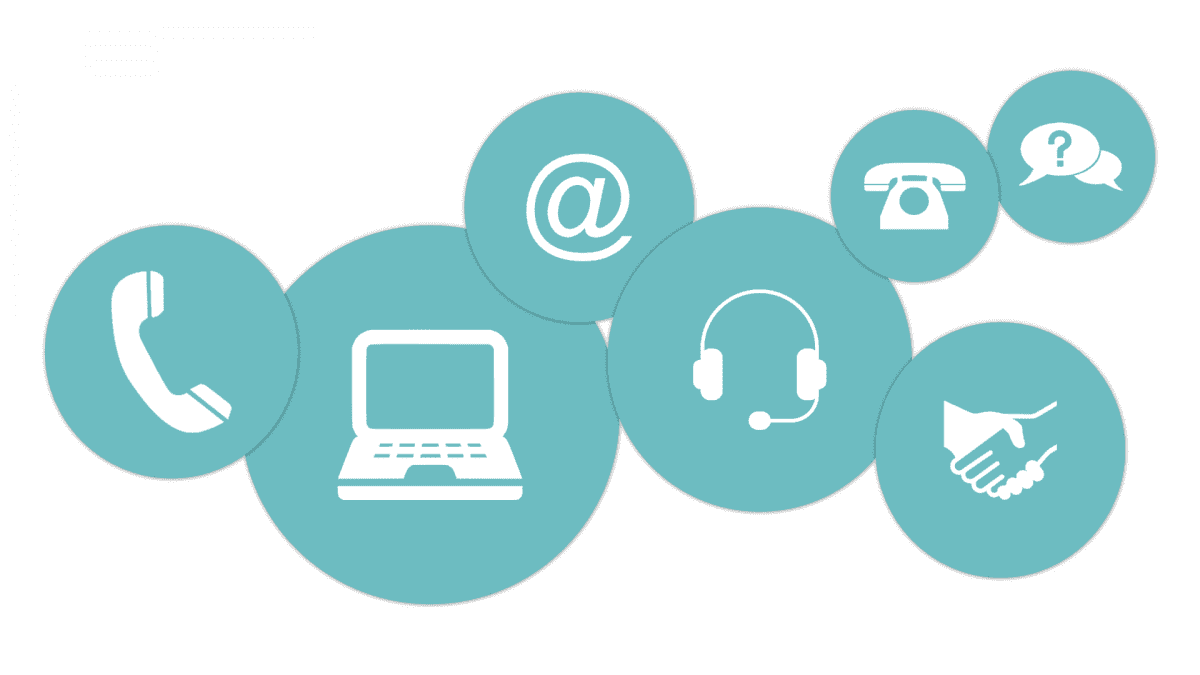
As 2020 clearly demonstrated, the retail supply chain is a complex and fragile system. Much like military planes flying in formation, it depends on dozens of moving parts working together in perfect unison. If the timing is off, the entire system can falter.
Contrary to popular belief, the retail supply chain doesn’t begin and end with logistics. It starts much earlier—with demand planning—and continues long after delivery. Any retail business needs an effective retail supply chain management strategy to succeed, let alone thrive.
In this guide, we’ll walk you through the fundamentals of retail supply chain management, explore its importance, and share strategies to overcome common challenges.
Navigate this blog with ease—click any section in the table of contents to get started.
- Defining Retail Supply Chain Management
- The 5 Basic Steps of Supply Chain Management
- Why Is Supply Chain Management Important?
- Top Retail Supply Chain Management Challenges
- Solutions for Retail Supply Chain Management
- Optimization Strategies
What Is Retail Supply Chain Management?
Retail supply chain management is the process of directing, overseeing, and optimizing every step involved in getting retail products to customers. This includes everything from demand forecasting and sourcing to production, delivery, and returns management.
Each step plays a critical role in the success of a retail business. Let’s break down the five core components of retail supply chain management.
What Are the 5 Basic Steps of Supply Chain Management?
While managing the entire retail supply chain involves dozens of tasks, it can be simplified into five primary elements:
1. Planning
Retail supply chain management begins with planning—determining how many products are needed to meet customer demand. This involves demand forecasting and purchasing the right amount of materials.
- Too much inventory leads to wasted resources and reduced profits.
- Too little inventory forces customers to turn to competitors.
Striking the right balance requires ongoing analysis and refinement.
2. Sourcing
Next, businesses must acquire the necessary materials and outsourced components. Effective sourcing involves:
- Evaluating supplier quality
- Managing payments
- Ensuring compliance with import/export regulations
Regular reviews and adjustments are essential for optimal results.
3. Production
Production may involve manufacturing from raw materials or tasks like repackaging, kitting, wrapping, or staging. The goal is to minimize variation and ensure consistency with client expectations.
Quality control and process standardization are key to long-term success.
4. Delivery (Logistics)
Often referred to as logistics, this stage includes:
- Order processing
- Distribution and shipping
- Warehousing and inventory management
- Partnering with third-party logistics providers (3PLs)
Efficient delivery ensures timely fulfillment and customer satisfaction.
5. Returns (Reverse Logistics)
Returns are a vital part of the customer experience. Poor returns management can damage your reputation and bottom line—especially in eCommerce.
Effective reverse logistics includes:
- Clear return policies
- Streamlined return processing
- Customer-friendly solutions

Why Is Retail Supply Chain Management Important?
Getting retail supply chain management right unlocks a wide range of benefits. Getting it wrong can jeopardize your business. Here’s why it should be a top priority:
1. Efficiency
The primary goal of any business is profitability. A well-optimized retail supply chain reduces waste, lowers costs, and speeds up delivery—resulting in happier customers and repeat business.
2. Streamlined Workflows
Effective supply chain management creates scalable, repeatable systems. This allows your business to grow without sacrificing quality or efficiency.
3. Cost Reduction
By improving resource allocation and eliminating inefficiencies, you can reduce operational costs without compromising product quality. This keeps your pricing competitive and protects your margins.
4. Resiliency and Agility
A resilient supply chain can adapt to disruptions. Whether it’s a factory shutdown, shipping delays, or global events like COVID-19, having contingency plans in place helps you pivot quickly.
Agile businesses often:
- Diversify suppliers and carriers
- Maintain flexible delivery networks
- Use real-time data to adjust operations
5. Consistent Customer Experience
All of these benefits contribute to a consistent and reliable customer experience. When customers receive products on time and in good condition, they’re more likely to trust your brand, remain loyal, and recommend your business to others.
Top Retail Supply Chain Management Challenges
Retail supply chain management is a hot topic in the business world—and for good reason. It’s difficult to get right. If it were easy, every business would have a flawless supply chain. Success starts with understanding the obstacles so you can prepare and respond effectively.
1. Effective Inventory Management
Inventory management is critical for any retail business, especially in eCommerce. To sell products online successfully, you must have the right inventory available at the right time. If an item is out of stock, you lose the sale—and potentially the customer.
However, overstocking isn’t the answer. Excess inventory leads to higher production, storage, and transportation costs. Striking the right balance is essential for profitability and customer satisfaction.
2. Supply Shortages
Some challenges are harder to overcome than others—supply shortages being one of the most disruptive. If one supplier runs out of materials, switching to another may be easy. But global shortages are a different story.
The key is to identify alternative materials and suppliers early and monitor market trends to anticipate disruptions before they happen.
3. Supply Chain Bottlenecks and Shipping Delays
Since 2020, businesses have faced numerous supply chain disruptions—from factory shutdowns and labor shortages to blocked shipping routes. When your supply chain operates with clockwork precision, even a small hiccup can halt the entire process.
Just-in-time inventory systems are efficient—until something doesn’t arrive just in time. Building flexibility into your supply chain helps mitigate these risks.
4. Minimizing Costs
Minimizing costs is essential for survival. A business that spends more than it earns is on the path to bankruptcy. While increasing sales is important, controlling costs ensures healthy profit margins and keeps product pricing competitive.
5. Maximizing Customer Experience and Satisfaction
Many businesses focus solely on acquiring new customers. But retaining existing customers is often more profitable. In fact:
- Acquiring a new customer costs 5–10x more than selling to a repeat customer.
- Repeat customers spend 67% more than new ones.
- 65% of a business’s revenue comes from returning customers.
- A 5% increase in retention can boost profits by up to 75%.
Customer retention starts with satisfaction. Make purchasing easy, deliver quality products, meet expectations, and provide real-time delivery tracking. These elements build trust and loyalty—key drivers of long-term success.
Want more industry insights?
Subscribe to our newsletter to receive weekly last mile logistics insights directly to your email inbox each week!
Top Retail Supply Chain Optimization Strategies
To build an efficient and resilient retail supply chain, you need the right strategies. Here are some of the most effective approaches:
1. Real-Time Data Analytics and Demand Forecasting
Data is power. With real-time analytics and predictive forecasting, you can anticipate demand, manage inventory, and respond to market changes.
As Winston Churchill said, “The farther backward you can look, the farther forward you can see.” Patterns in customer behavior and market trends help you predict future outcomes.
For example, the bird flu outbreak in chickens led to a spike in egg prices. Now that it’s affecting dairy cows, businesses in the dairy sector can use historical data to anticipate similar disruptions.
By leveraging data, you can make smarter decisions across your retail supply chain—from sourcing to delivery.
2. Optimized and Automated Routing and Dispatch
Efficiency is everything—and automation is the key. The retail supply chain includes many repetitive tasks that are perfect candidates for automation.
Routing and dispatching are prime examples. Instead of manually planning routes, use software to automate the process. This saves time, reduces errors, and improves delivery speed.
Automating returns processing is another way to cut down on administrative tasks and free up resources for more strategic work.
3. Solid and Expansive Delivery Network
A robust delivery network enhances agility and resilience. By working with multiple carriers and maintaining diverse delivery options, you reduce the risk of delays caused by bottlenecks or disruptions.
A well-structured delivery network ensures that no single issue can derail your entire supply chain—unless it’s a widespread, systemic problem.
Partner with Elite EXTRA for Retail Supply Chain Success
Elite EXTRA offers purpose-built software solutions designed to help you build a successful retail supply chain management strategy. Our tools are built with efficiency and scalability in mind, helping you overcome common challenges and streamline operations.
From Returns Automation to Routing and Dispatch Optimization, our solutions integrate seamlessly with your existing systems to eliminate data silos and reduce manual errors.
Contact Elite EXTRA today to explore how our logistics software can help you improve your retail supply chain and drive long-term success.
Sources
https://www.investopedia.com/terms/s/scm.asp
https://www.business.com/articles/returning-customers-spend-67-more-than-new-customers-keep-your-customers-coming-back-with-a-recurring-revenue-sales-model
https://www.techtarget.com/searchcustomerexperience/definition/customer-retention
https://www.brainyquote.com/quotes/winston_churchill_136790
https://www.cdc.gov/bird-flu/situation-summary/index.html







